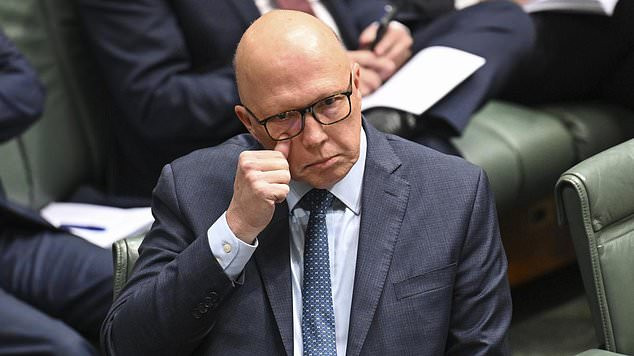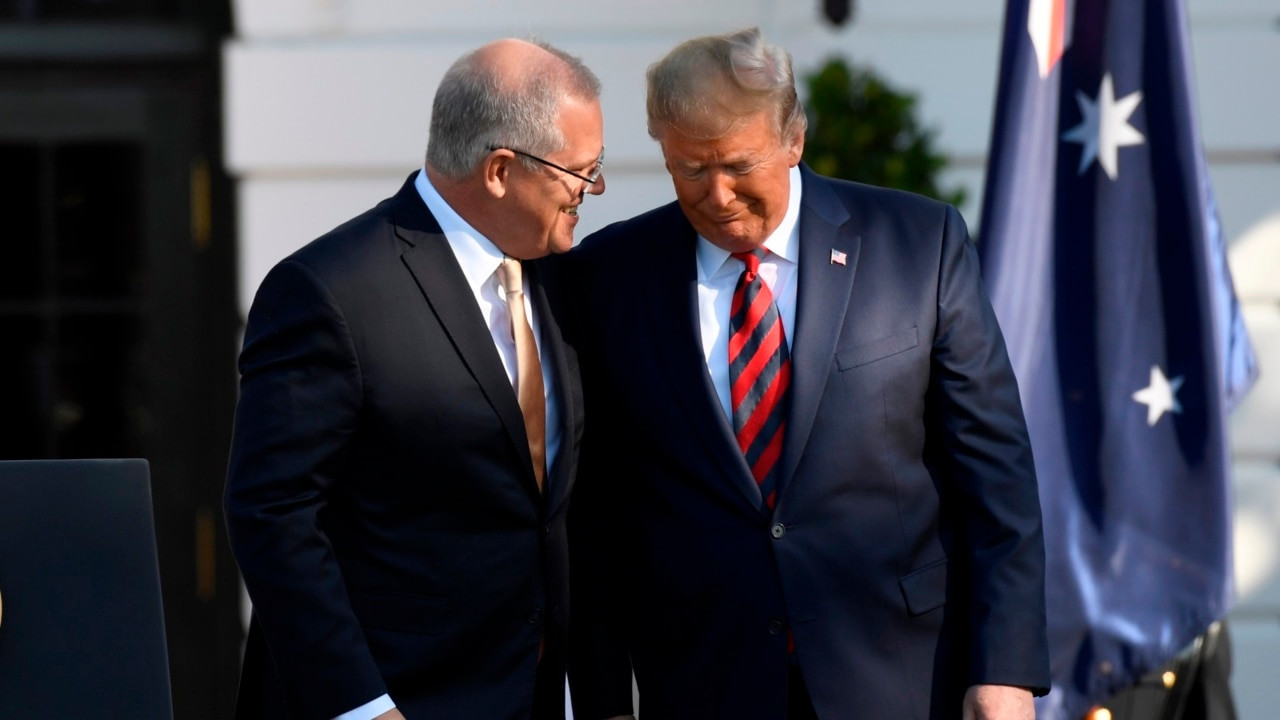Prime Minister Anthony Albanese has spoken with Donald Trump, the day after he was elected to be the 47th president of the United States. In a statement posted to social media, the prime minister said the pair spoke about the importance of the Australian-US alliance, AUKUS, trade and investment. The final count in the US election is still being finalised, with Mr Trump to be inaugurated in January.
Anthony Albanese has spoken to president-elect Donald Trump, following his victory in the US election. The call took place on Thursday morning, following a press conference at Parliament House when the prime minister told reporters he was yet to make contact with Mr Trump.
Mr Albanese said it was good to speak to the president-elect and “personally congratulate him on his election victory” in a statement posted to social media. “We talked about the importance of the alliance, and the strength of the Australia-US relationship in security, AUKUS, trade and investment,” he said. “I look forward to working together in the interests of both our countries.”
Mr Trump had already spoken to a number of world leaders in the wake of his election victory.
The prime minister earlier dismissed a question about whether he needs to apologise to Trump for previously negative comments about the president-elect. Donald Trump will be the next US president after claiming a decisive victory in this week’s election. In a 2017 video taken at a music festival, Mr Albanese is asked about how he would deal with Mr Trump. “With trepidation,” he responded. “He [Trump] scares the s**t out of me and I think it’s of concern the leader of the Free World thinks that you can conduct politics through 140 characters on Twitter overnight.”
Mr Albanese told reporters on Thursday he looks forward to working with president-elect Trump. “I’ve demonstrated, I think, my ability to work with world leaders and to develop relationships with them, which are positive,” Mr Albanese said.
Earlier in the day, Foreign Minister Penny Wong congratulated Mr Trump on the election result, describing it as a “decisive victory”. She told the ABC that she was looking forward to working with the new administration even if there were policies on which they disagreed. “We are an alliance based on our values and history and shared strategic objectives, it’s a timeless alliance,” she said. “The alliance is big enough and strong enough to comprehend differences in policy because of its history and shared objectives.”
Donald Trump will return to the White House, leaving allies like Australia — and rivals like China — wondering what might be coming next. Asked about Mr Trump’s plans to impose significant tariffs on imported goods, she said the former president “campaigned on change and president Trump will no doubt deliver change”. “I would first say to Australians that we should be confident in ourselves and our ability to work together to progress Australia’s interests.”
Shadow Foreign Minister Simon Birmingham said Australia had successfully worked through “less conventional” policies from the Trump administration before. “President [elect] Trump has made policy commitments coming into this election, and he’s won this election, and seems to have won it convincingly,” he said. “He takes an approach with policies that are sometimes less conventional than people are customarily used to, and he makes strong and bold pronouncements that are less normal and more surprising than people are used to, but we have successfully worked through those policies before.”
Australian Government's Response to Trump's Election
The Albanese government has said it is prepared to work with Trump, even though he has been a divisive figure in US politics. The government has also been preparing for Trump’s policies with briefings on security, economic and other issues. The government has said it will continue to be advocates for free and fair trade, including through the Apec meeting that Albanese will be attending next week. The government has also said that it will continue to push for climate action, arguing that the whole world is moving in this direction because it makes good economic sense.
Aukus and Trump's Policies
Aukus is a security pact between Australia, the United Kingdom and the United States, under which Australia will acquire nuclear-powered submarines from the US. The deal has been controversial, with some arguing that it will make Australia a target for attack. However, the Albanese government has said that the submarines are necessary to deter aggression from China.
Aukus has been the subject of debate in Australia, with some arguing that the deal will make Australia a target for attack. Others have argued that the deal is necessary to deter aggression from China. The Albanese government has said that the submarines are a sovereign capability for Australia and that there has been strong bipartisan support for Aukus.
Australia's Relationship with the US
Australia and the US have a long and strong relationship, dating back to World War II. The two countries are allies in the Asia-Pacific region and have shared interests in promoting democracy, freedom and security. The US is Australia’s most important security partner, and the two countries cooperate on a range of issues, including defense, trade, and climate change. The Albanese government has said that it will continue to work with the US to strengthen the relationship and promote shared interests.
The Future of the US-Australia Alliance
The future of the US-Australia alliance is uncertain. Trump’s presidency has been a period of turbulence in the relationship, with Trump criticizing Australia’s trade policies and its refugee resettlement program. However, the two countries have also worked together on a range of issues, including security, trade, and climate change. The Albanese government has said that it is committed to working with the US to strengthen the alliance and promote shared interests. The future of the US-Australia alliance will depend on a number of factors, including Trump’s policies, the outcome of the 2024 US election, and the evolving geopolitical situation in the Asia-Pacific region.
A New Era of Politics?
The relationship between the United States and Australia has always been complex, but it is increasingly so. There are a number of factors that have contributed to this, including the rise of China, the ongoing war in Ukraine, and the growing global economic uncertainty. The Albanese government will have to navigate these challenges carefully, and it will need to build a strong relationship with the US to protect Australia’s interests.
In the coming years, the US-Australia alliance will be tested. However, the two countries have a shared history of cooperation, and there is a strong foundation for a continuing partnership. The Albanese government will need to build on this foundation, and it will need to be prepared to navigate a complex and challenging geopolitical environment.


















